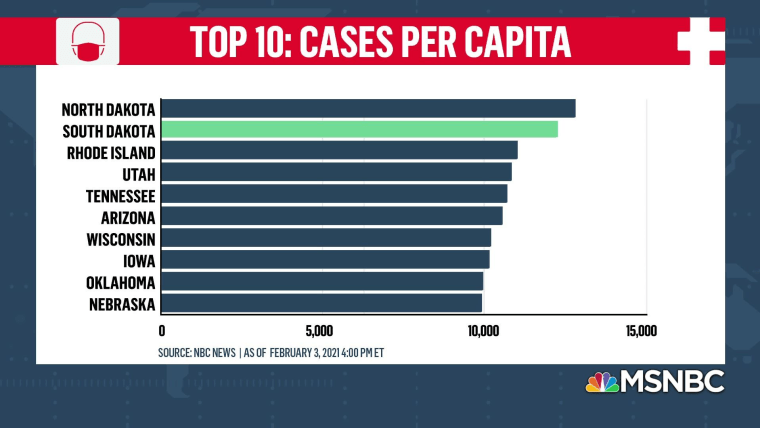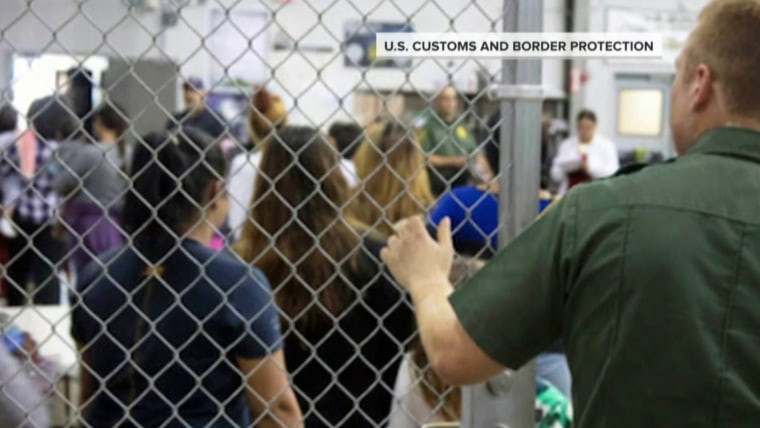Kristi Noem's immigration policy: Send privately-funded national guard troops to Texas.
"A lot of heads turned at South Dakota Gov. Kristi Noem’s announcement on Tuesday that she was sending up to 50 members of the South Dakota National Guard to help guard the border in Texas — and that the mission was being funded by a private donor.
Is it really in a state’s sovereign interest to allow a Governor to use the national guard as a quasi-mercenary force whenever a well-heeled donor asks her to?
Although the move is transparent political theater (50 guard members will hardly make a dent along the 1,254-mile border between Texas and Mexico), it also raises novel (and disturbing) legal questions. Depending on the details, Noem’s dispatch of a privately funded military support force to a sister state may not be in violation of either federal or South Dakota law. And that may be the biggest problem here.
Like any other National Guard troops, members of the South Dakota National Guard wear multiple hats. Most often, they are either inactive or in state active-duty status, under which they remain under the command and control of the governor of their state. At the opposite end of the spectrum is when they are federalized by the president, at which point they become part and parcel of the federal armed forces for all relevant legal purposes.
In between is a murky category that has emerged in recent years where National Guard troops remain nominally under state control, but the states volunteer to send their guard units to support federal missions.
This middle ground is what was utilized last June in Washington, when 11 states (10 with Republican governors) voluntarily dispatched National Guard troops at the federal government’s request in response to protests in the nation’s capital arising out of the murder of George Floyd. As I wrote then, even if the Washington, D.C.. deployment was based upon a correct reading of the relevant statute (which is a debatable proposition at best), it created the awkward impression of a Republican president using unfederalized National Guard troops from Republican-led states against a mostly Democratic jurisdiction (the District of Columbia). The specter of red state armies vs. blue state armies seemed more than a little ominous.
We can at least agree that leaving immigration policy up to each state is not just precluded by the Constitution’s supremacy clause, but is, in practice, a recipe for disaster.
But federalization or federal requests for assistance aren’t the only means by which a state might deploy its National Guard into other states. Under the Emergency Management Assistance Compact, or EMAC, every state — including South Dakota and Texas — has agreed to provide support to other states during emergencies, including, where necessary, by sending members of its National Guard. Thus, if all that happened here was a request from Texas Gov. Greg Abbott to Noem under EMAC, the fact that one state was sending National Guard troops into another to respond to a disaster declared by the requesting state’s governor would be a nonstory.
That’s where the private funding comes in. Article IX of EMAC provisions makes clear that the requesting state (Texas in this scenario) is on the hook for “any loss or damage to or expense incurred in the operation of any equipment and the provision of any service in answering a request for aid and for the costs incurred in connection with such requests.” In other words, a state that requests assistance has to pay for it.
So Noem’s suggestion that this mission is being privately funded might be seen as a signal that it is therefore not in fulfillment of a request under EMAC — and that, even if Abbott is consenting to the presence of South Dakota Guard units in Texas, he isn’t paying for it. (EMAC also imposes limits on the use of such National Guard troops that might also have posed problems here.) Perhaps the point of the private donation is to spare Texas of the need to reimburse South Dakota — but nothing in EMAC contemplates that maneuver, either.
EMAC, however, is not exhaustive, and no federal statute generally prohibits states from sending their (unfederalized) National Guard units into another state with that state’s permission. At least from the perspective of federal law, it’s possible that the deployment is perfectly legal. (As legal analyst Luppe Luppen has pointed out, there may be some rather significant federal tax issues for the donor, which is apparently a 501(c)(3) charitable foundation, but that wouldn’t make the deployment unlawful.)
Although federal law would prohibit the use of private funds to sponsor a military operation (through a statute known as the Anti-Deficiency Act), it is not at all clear that South Dakota law includes a similar prohibition. Thus, as off-putting and bizarre (and practically pointless) as it may seem, there may be no legal barrier to Noem’s decision to send privately funded South Dakota National Guard units to Texas.
But the fact that Noem’s action may not itself be unlawful doesn’t diminish the three larger issues that arise from her (again, purely symbolic) move.
First, this entire episode is an empty, partisan stunt — with Abbott purporting to take over for the federal government as the first line of border security. But as the Supreme Court reiterated as recently as 2012, it’s the federal government, and not the states, that makes immigration policy.
As Justice Anthony Kennedy wrote for the court in Arizona v. United States, states “may have understandable frustrations with the problems caused by illegal immigration while that process continues, but [they] may not pursue policies that undermine federal law.” Thus, although Texas, like any state, can support federal immigration enforcement, it cannot supplant it. Reasonable minds will surely disagree about the current state of federal immigration policy. But hopefully we can at least agree that leaving immigration policy up to each state is not just precluded by the Constitution’s supremacy clause but is, in practice, a recipe for disaster.
If that private funding runs out, or is otherwise insufficient, who’s left to foot the bill?
Second, state legislatures should think carefully about the circumstances in which state law allows governors to honor requests for assistance from other states. In this case, it doesn’t appear that South Dakota’s Legislature has precluded Noem either from No. 1 sending the South Dakota National Guard into another state outside of the EMAC framework or No. 2 allowing her to do so with private funding. But if that private funding runs out, or is otherwise insufficient, who’s left to foot the bill?
If South Dakota National Guard troops end up liable for property damage or other misconduct, will the state indemnify them? And politics and liability aside, is it really in a state’s sovereign interest to allow a governor to use the National Guard as a quasi-mercenary force whenever a well-heeled donor asks her to?
More from MSNBC Daily
Must reads from Today's list
Third, and most importantly, the episode also reinforces the concerns I first raised last summer about the rising specter of red state armies vs. blue state armies. It makes all the sense in the world to have legal processes in place through which other states and the federal government can request (and the federal government can require) a state’s National Guard to render assistance outside of its borders. But just as with last summer’s unprecedented use of out-of-state National Guard units in Washington, Congress ought to specifically delineate the circumstances in which such requests are permissible (and otherwise prohibited) — including by making EMAC the exclusive mechanism for interstate assistance requests.
Among other things, such legislation would help to minimize the risk that governors of one political party will amass National Guard units in a single state because a federal executive of a different party is, in their view, inadequately enforcing federal law. Otherwise, it’s not hard to see how this slope gets awfully slippery in a hurry — with a potential for confrontation between two sets of American troops at the bottom."


No comments:
Post a Comment